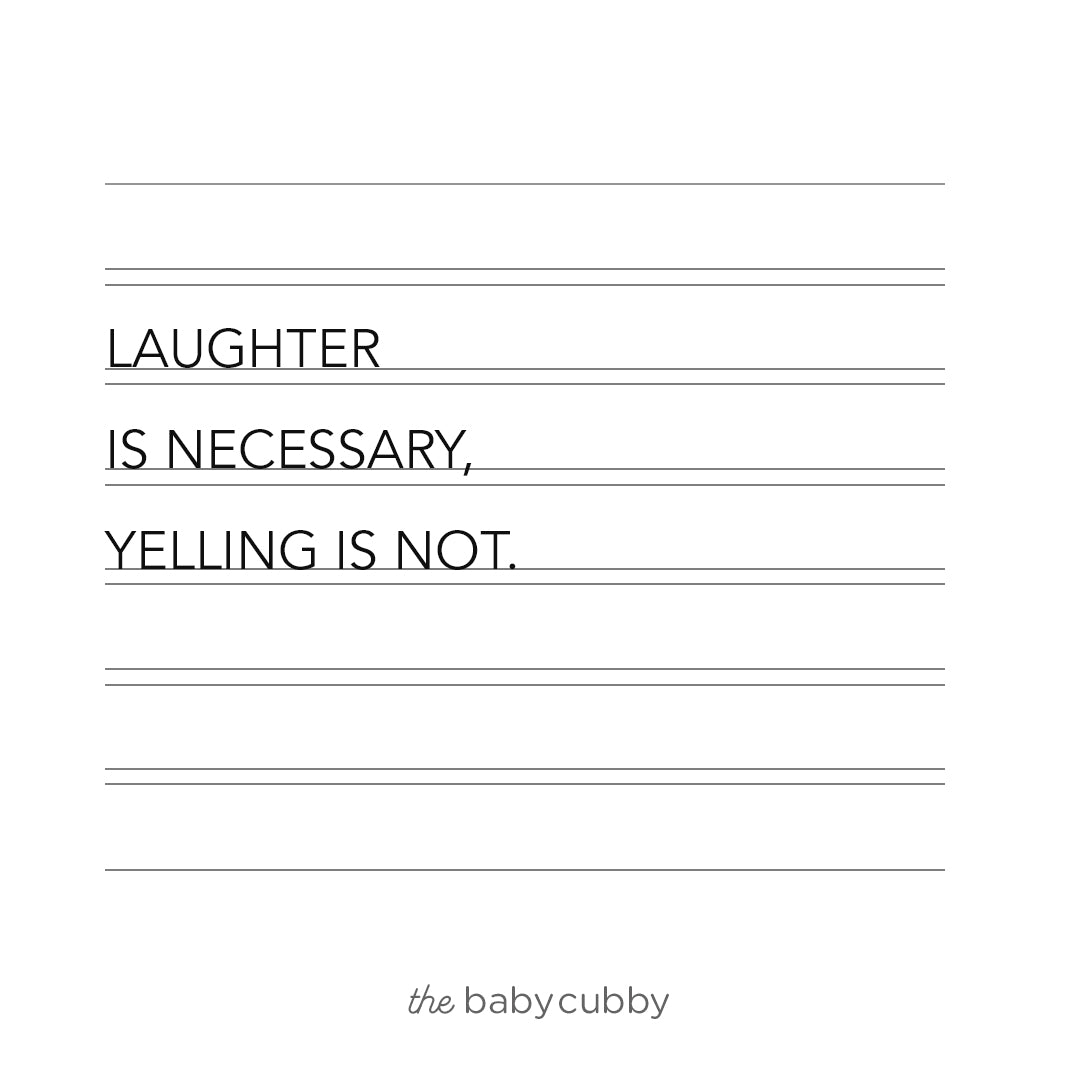We’re in the middle of a little mini series all about yelling. Brooke recently wrote the first post in this series talking about the affects yelling has on your children. This post will focus on alternatives to yelling at or to your child.
Calm down
In the words of Daniel Tiger, “If you feel so mad that you wanna roar, take a deep breath and count to four.” Usually by the time I get to the point that I know I need to calm down, it’s a really bad situation. HOWEVER, when I’m able to truly calm down, even if it’s just a tiny bit, I’m in a much better mindset to handle the situation at hand.
Getting down on their level
Crouching down at eye level and firmly talking could be scary for a child, but it’s a heck of a lot less scary than hovering over them with your much larger body and yelling down to them. Getting down on their level allows them to know that you're taking the effort to help them feel listened to and from there, the situation can be worked out.Time out
Whether this is for your child or yourself, alone time is a good idea for everybody involved. Being able to cool down and reassess the situation as logically as possible can be a huge win.Plan ahead
If you know you’re about to head into a situation where you’ve commonly yelled before, prepare for what is about to go down by getting your mind on board with how you will handle the situation should it go poorly again.Ignore or walk away
Don’t do this in a dangerous situation. But sometimes ignoring a negative behavior can help show the child that acting that way won’t get them any attention.Positive reinforcement
Instead of yelling at your child about what they just did wrong, find a positive thing in the scenario and focus on that. This is suuuuper hard for me to do, and it is often an after-thought that I still try to acknowledge later, but this positive reinforcement is a phenomenal way of teaching children about behaviors.Physical touch
Perhaps this could be a bad idea for parents who tend to grab or roughly go about being upset. But if you’re somewhat calm, walking over to the child and engaging in some sort of physical touch can help to calm both of you down. Whether it’s a stroke of the face while discussing what the problem is, or holding their hands while explaining what they did was wrong, or something else simple like that. This could make a big difference for both parties involved.New strategies
“Bronson, Bronson, Bronson, BRONSON!” Sound familiar? Maybe instead of resorting to yelling in this situation, find a new way to get his attention. Flicker a light switch or whistle. I’ve heard whispering is a good one here as well, just because it throws them off.Change the subject
If my son is asking me a gazillion questions (namely, “why?”) while I’m in a situation where I’m unable to give him my complete focus, I lose my patience really fast and shout something like, “I have no clue! Go ask your dad!” One nice trick to do in a situation like this would be to completely change the subject or give him a new task to do and get him thinking down a different path while I finish up what I’m doing.Think about why
Why am I angry? Am I upset that I didn’t explain the directions clearly enough? Am I disappointed in a decision or behavior my child has performed? Am I angry because of something in the environment affecting my clearness of thinking? I’ve found that the majority of my yelling comes from being interrupted from something I’m working on and I snap at a child before I have time to fully come out of what I’m doing and give them my focus. Figuring out some of my reasons why have really helped me reduce the frequency of my yelling.Sing a song
Stay with me here. What if instead of shouting at your child, you entered into sing-song mode and made a melody of your feelings at the time? Not in a silly way to reinforce the bad behavior, but simply to calm your own self down before addressing the situation.Change perspectives
This has got to be the number one game changer for me. It’s not always possible to get the whole picture or all of the context of why my son has just done what he’s done, but I try to piece together a logical reason for his behavior and work my way back from there. Like if he hits his little sister in the head with a toy, I'll of course comfort my daughter, but while doing this I assess what's been going on and find the root of the problem. I have found that this truly helps me to calm down.Manhattan Toy Company Pull-Back Speedy Jet Wooden Toy
I recently participated in a no-yell challenge, where the goal was to go an entire week without yelling. Instead of feeling defeated or giving up when a yell (or two or three) slipped out, I pushed through and finished out the week. I’m proud to say that this challenge has changed the way I handle many situations around my house and I truly have yelled far less since that week of change. If you’re struggling with yelling at your children, I challenge you to start right this minute and consciously try your best to not yell for a whole week. In trying this, you’ll discover that some of these alternatives to yelling may be very beneficial. And who knows, maybe you too will be able to kick the yelling habit!






